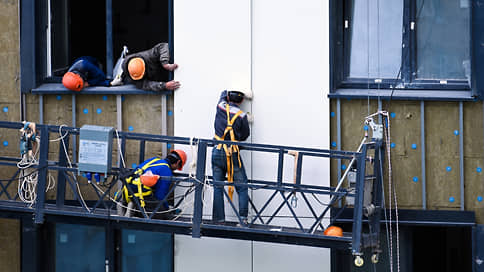Krasnoyarsk Territory will switch to a single -level MSU system

Krasnoyarsk Territory became one of the first constituent entities of the Russian Federation, where they decided to implement the provisions of the new Federal Law on Local Self -Government (MSU). On April 24, the regional parliament approved in the first reading the transition to a single -level MSU system with a radical reduction in the number of municipalities – from 472 to 39. The chapters of all the remaining municipalities will now be elected only from the number of candidates proposed by the governor.
According to the bill introduced into the Legislative Assembly by Governor Mikhail Kotyukov, a single -level MSU system is introduced in the Krasnoyarsk Territory with simultaneous enlargement of municipalities. Now there are 472 municipalities in the region, including 17 urban and 12 municipal districts, 32 municipal districts, as well as 389 rural and 22 urban settlements. After the law comes into force, only 39 will remain: six urban districts and 33 municipal ones.
According to the First Vice-Governor Sergei Ponomarenko, the reform will allow « strengthening the personnel potential of the Ministry of ESSU, to optimize the management system and consolidate financial and material resources. »
Recall that initially the new edition of the Federal Law on the MSU provided that all constituent entities of the Russian Federation would have to switch to a single -level system. But then was accepted An amendment that allows the regional authorities to independently choose a model that meets the local characteristics. According to the relevant State Duma Committee, they were going to maintain a two -level system in at least 18 regions.
In addition to the enlargement of the municipalities, the bill Mikhail Kotyukova changes the procedure for electing their chapters. Now mayors are elected by deputies of representative bodies from among the candidates selected by a special commission. Anyone can apply for a competition. After the law entered into force, only the governor will have the right to submit candidates for consideration of deputies. “This approach, in our opinion, will allow you to build a closer interaction between the municipal and state power, will ensure the implementation of the constitutional principle of the unity of the system of public power,” Mr. Ponomarenko explained.
Only the Communists made criticism of the project. “With this bill, the state seems to pierce the crowbar on top,” said Alexander Ratakhin, deputy head of the Communist Party of the Communist Party. In his opinion, the proposed reorganization of MSU deprives the people of the right to elect their representatives “on earth”. Another deputy from the Communist Party Boris Melnichenko was surprised how quickly a bill was adopted, the existence of which deputies learned only at the beginning of the week: “We in rural territories, of course, live with faith in the righteousness of fate, but I would like to live by hope for a consistent pattern of orders of certain ones.”
Note that this reform is realized, indeed, very quickly. The bill was submitted to the parliament on April 18 and approved in the first reading on the 24th, although by virtue of its norms will come only on June 19 (on this day a new Basic Law on MSU will work). As Sergey Ponomarenko explained, the authorities did not conduct a mass discussion of the project either with the population or with municipalities to “save time”. “At the time when the Communists ruled the Krasnoyarsk Territory (during the USSR. « Kommersant »), the administrative-territorial device has repeatedly occurred, the boundaries of municipal areas have repeatedly changed … Nobody, ever, did not hold any consultations with anyone, ”the first vice-governor recalled.
The official was supported by some opposition deputies. For example, Irina Ivanova (“Green”) stated that in the context of “Russia’s struggle for survival”, “effective unity of charge” needed. And Denis Terekhov (“new people”) asked the opponents of the reform not “hiding behind some mythical people”, because “deputies are the last people for whom the people will care.”
As a result, the bill in the first reading was supported by 35 deputies, seven voted against.
At the same time, the Legislative Assembly adopted a resolution with a proposal to the government of the region to adopt a number of measures during the reform – for example, « to work out the issue of additional regulation and development of various forms of population participation in the implementation of the ISU. »
Note that in the abolished municipalities, questions have already appeared to the document, which primarily relate to new administrative borders. For example, in the Account of the Administration of the Sukhobuzimsky District (it is planned to be attached to Bolshemurtinsky) on the VKontakte social network was carried out A survey, 3664 participants of which spoke to preserve their municipality and only 300 against. According to political scientist Alexander Chernyavsky, the reform of the regional MSU will become « a serious stress test for the entire regional vertical of power. »






